











Read More
With an objective to prepare a skilled workforce in the field of civil engineering, Assam down town University offers job-oriented studies with a 4-year B.Tech in Civil Engineering. This programme deals with the design, construction, and maintenance of the physical and naturally built environment, including public works such as roads, bridges, canals, dams, airports, sewerage systems, pipelines, structural components of buildings, and railways. Over time, the university has established itself as one of the best colleges for civil engineering.
Year wise Course Details
Courses for this semester
The course consists of topics in differential calculus, integral calculus, linear algebra, and differential equations with applications to various engineering problems. This course will cover the following main topics: Mean Value Theorems; Indeterminate Forms; Taylor's and Maclaurin's Theorems.
This course is a combination of three different components, namely Mathematics, Logic/Reasoning, and Coding. The first part covers the mathematical background and fundamental skills necessary for success in Set Theory, Functions, Mathematical Logic, and Induction. This course also will introduce you to verbal and non-verbal reasoning, and informal and formal logic. Its purpose is to provide you with the basic tools of analytical reasoning, which will give you a distinctive edge in a wide variety of careers and courses of study. The course also tries to deal with basic programming concepts and problems solving using the C – language.
Engineering Physics is a 4-year undergraduate course that deals with electrical science, electronics, mechanics, computing, nuclear physics, and more. The course deals with engineering concepts and topics falling under engineering physics.
Basic Electrical Engineering deals with the basic Laws of electricity such as Ohm's law Kirchhoff's voltage and current laws, Nodes Branches and loops Series elements and Voltage Division Parallel elements and Current Division and Star-Delta transformation Independent sources and Dependent sources and source transformation.
This is a major component of engineering practices. It includes both theory and practical knowledge of the students. In the mechanical workshop, the various shops are incorporated such as (a) welding shop, (b) carpentry shop, (c) fitting shop, (d) machine shop, (e) sheet metal shop, (f) foundry shop.
This course will help the students to improve their overall communication skills, they will be taught important basic English grammar. It will help them attain professional skills in communication. The modules are meant for enhancing their professional success. The topics of grammar would be followed by practice and exercises that they would find interesting. Students will also be taught the theories and other nuances of communication.
Extracurricular activities are programs that are not part of the regular school curriculum; and, are structured around an activity, goal, or purpose. Also known as extra-academic activities, extracurricular activities include sports, student government, community service, employment, arts, hobbies, and educational clubs. Extracurricular activities complement an academic curriculum.
Courses for this semester
The course aims to cause an enhanced awareness about the significance of soft skills in professional and interpersonal communications and facilitate an all-round development of personality. Hard or technical skills help secure a basic position in one's life and career. But only soft skills can ensure a person retains it, climb further, reach a pinnacle, achieve excellence, and derive fulfillment and supreme joy. Soft skills comprise pleasant and appealing personality traits such as self-confidence, positive attitude, emotional intelligence, social grace, flexibility, friendliness, and effective communication skills. The focus of this course is on interpersonal and management skills. It has been approved for the "Faculty Development Programme" by AICTE.
Education has become more accessible to people with the advent of technological assistance. Open and Distance Learning (ODL) is one such avenue that utilizes technology for imparting knowledge with the convenience of students as its prime objective. This convenience is present in terms of the student deciding the time, place, and pace of study. Although various factors lead to a successful impartation of knowledge, ‘learning outcomes and student achievement’ constitute the major building blocks in the field of education. Though academic achievement of students depends on a multitude of factors including the student's desire to learn, instructional strategies, study materials, students’ study skills, etc.
The course is designed for students who have finished their Senior Secondary classes and doing their bachelor's degrees in any discipline (B. Ed, B.A., B.Sc., B.Com., B.Tech., B.Sc.Bio.Tech., B.Pharm, etc, and even Postgraduates of any discipline who want to improve their communication skills in English and also professionals who are keen on improving their communication skills in oral and written English.
The course consists of topics in differential calculus, integral calculus, linear algebra, and differential equations with applications to various engineering problems. The course is aimed at developing the basic Mathematical skills for Engineering students that are imperative for effective understanding of Engineering subjects. The topics introduced will serve as basic tools for specialized studies in many Engineering fields. This course will cover the following main topics: Ordinary Differential Equations, Vector Calculus, Laplace Transforms, Analytic Functions, and Complex Integration.
The concepts developed in this course will aid in the quantification of several concepts in chemistry that have been introduced at the 10+2 levels in schools. Technology is being increasingly based on electronic, atomic, and molecular level modifications. Quantum theory is more than 100 years old and to understand phenomena at nanometer levels, one has to base the description of all chemical processes at molecular levels
This course is introduced to provide a basic understanding of the fundamentals of Engineering Drawing, mainly visualization, graphics theory, standards and conventions of drawing, the tools of drawing, and the use of Drawings in engineering applications.
This course is to teach students the basic of pure programming and problem-solving. This course provides students with a comprehensive study of the C programming language. The course emphasizes problem-solving and empirical skills through the process of designing, implementing, and executing C programs.
The Complete C Programming Fundamentals with Example Projects starts from the very beginning by teaching you C programming basics and then going into advanced topics and different career fields in C programming so you can get real-life practice and be ready for the real world.
The design of this course is meant for improving the grammar skills of the students to be integrated into their written and verbal communication. The students will be able to improve their vocabulary. In addition, students will be taught the important dress code ethics and time management skills for making a good impression in their professional contexts.
AdtU encourages a range of activities outside the regular curriculum intended to meet learner’s interests, These activities are aimed to develop the social and soft skills and promote the holistic development of the learners, Keeping in mind the 360-degree learning methodology the students are engaged in different activities headed under different clubs viz. Dance, music, photography, drama, literary, etc., The students are encouraged to participate in regular club activities, workshops, and competitions as per their interests and hobbies, The student members of the club are trained to represent AdtU in various inter University student and national level competitions, Renewed personalities are invited to conduct workshops that benefit the members and students by giving them the platform to learn from experts in the respective fields.
Co-curricular activities are an integral part of the curriculum which provides educational activities to the students and thereby helps in broadening their experiences. Co-curricular activities can be defined as activities that enhance and enrich the regular curriculum during normal university hours. All co-curricular activities are organized with a specific purpose which varies according to the nature and form of such activities.
This course is intended to provide a much-needed orientationally input in value education to the young enquiring minds.
Courses for this semester
-
-Engineering Geology is the application of the geological sciences to Civil Engineering practice for the purpose of recognizing the location, design, construction, operation and maintenance of engineering projects such as Dams, Barrages, Bridges, High rise buildings and other such important projects. Students will be able to know the details of rock formation and study of rock cycle. Students will be able to identify different minerals and find their properties. They will understand the various geological features e.g. folds and faults. They will be able to select geologically suitable sites for massive Civil Constructions work.
Biology for Engineers is designed to introduce engineering students to fundamental concepts in biology and their applications in engineering disciplines. The course aims to bridge the gap between biology and engineering, providing students with a strong foundation in biological principles relevant to their field of study.
"Introduction to Civil Engineering" provides a comprehensive overview of the foundational principles, methodologies, and applications within the field. This course covers the fundamentals of civil engineering, including topics such as structural analysis, construction materials, surveying, transportation engineering, and environmental considerations. Students delve into the historical evolution of civil engineering, gaining insight into landmark projects and the societal impact of infrastructure development. Through theoretical discussions, practical exercises, and case studies, learners develop critical thinking skills and problem-solving abilities essential for tackling real-world engineering challenges. Emphasizing interdisciplinary approaches and ethical considerations, the course equips students with a broad understanding of civil engineering's role in shaping the built environment and its significance in addressing global sustainability issues.
This AutoCAD Lab course is designed to introduce students to the fundamentals of computer-aided design using AutoCAD software. The course covers a range of topics and hands-on exercises to develop students' proficiency in using AutoCAD for 2D and 3D design, drafting, and modeling.
This course introduces Civil Engineering students to the fundamental concepts and methods of solving Partial Differential Equations (PDEs) and applying mathematical transforms in the context of engineering problems. The course is designed to provide a strong theoretical and practical foundation for solving complex problems encountered in structural analysis, fluid mechanics, heat transfer, and vibration analysis, all of which are core to civil engineering applications
-
The Co-Curricular Activities for Civil Engineering course is designed to supplement the academic curriculum by providing students with hands-on experiences, leadership opportunities, and the chance to develop vital skills outside the classroom. This course encourages students to engage in activities that enhance their technical knowledge, teamwork, communication, and professional skills. Through participation in co-curricular activities such as workshops, seminars, competitions, and industry visits, students will have the opportunity to apply their theoretical knowledge in real-world scenarios, fostering personal and professional growth.
AdtU encourages a range of activities outside the regular curriculum intended to meet learner’s interest, These activities are aimed to develop the social and soft skills and promote a holistic development of the learners, Keeping in mind the 360 degree learning methodology the students are engaged in different activities headed under different clubs viz. Dance, music, photography, drama, literary etc., The students are encouraged to participate in regular club activities, workshops, competitions as per their interest and hobbies, The student members of the club are trained represent AdtU in various inter University student and national level competitions, Renewed personalities are invited to conduct workshops that benefit the members and students by giving them the platform to learn from experts in the respective fields
-
Material Testing and Evaluation is a course that focuses on experimentally characterizing materials for engineering and scientific purposes, covering topics like material selection, mechanical properties, failure analysis, and non-destructive testing. Students learn how to assess material performance across various applications and gain practical experience in using computer-aided engineering software, deepening their understanding of material behavior in different conditions through lectures, demonstrations, and lab experiments.
.
This course provides an over-view on the study of physical laws and principles to analyze and design structures, machines, and systems in engineering applications..
Courses for this semester
Environmental Science is a multidisciplinary exploration of the intricate relationships between humanity and the natural world. This course provides students with a comprehensive overview of fundamental ecological principles, environmental chemistry, biodiversity conservation, and the impacts of human activities on the environment. Through a blend of theoretical knowledge and practical applications, students delve into the complexities of pollution, resource management, and sustainable development. The course emphasizes the interconnectedness of ecological systems, aiming to cultivate an understanding of the delicate balance required for environmental harmony. By studying environmental chemistry, biodiversity, and pollution, students develop the skills needed to critically analyze and propose solutions to contemporary environmental challenges
This course provides civil engineering professionals and students with essential Excel skills tailored to the business side of the field. It is designed to enhance the ability to analyze, manage, and present data effectively, ultimately improving decision-making and project outcomes in civil engineering practices.
This course provides an introduction to the fundamental principles of electronics, focusing on concepts and applications that are directly relevant to the field of civil engineering. The course aims to equip civil engineering students with the essential knowledge and skills to understand and apply basic electronics in areas such as construction, automation, instrumentation, and infrastructure systems.
Surveying and Geomatics is a branch of engineering and applied sciences that combines mathematics, physics, and geography to accurately measure and collect spatial information about the Earth for land development, mapping, engineering, and construction. It involves the use of aerial, satellite, and terrestrial methods to measure and analyze the Earth’s surface and subsurface. Surveyors use a variety of instruments and techniques, such as, Compass, levels, and theodolites, to measure distances, angles, elevations, areas, and volumes. Surveying skills are also used to set out the boundaries of a proposed construction site, to locate buried utilities and pipes, and to provide as-built data for engineering projects such as roads and buildings. Geomatics engineers use their surveying skills to produce maps, plans, and drawings that accurately represent the features of the Earth’s surface.
Geotechnical Engineering encompasses the study of soil behavior, classification, and properties, enabling the design of secure foundations and stable structures. It involves assessing slope stability, earthwork design, and understanding geotechnical investigation methods for effective decision-making in construction and environmental projects.
This course is designed to complement the academic curriculum for Civil Engineering students by offering opportunities to engage in a range of co-curricular activities that enhance both professional and personal development. These activities will foster critical thinking, teamwork, leadership, and practical skills that are crucial for a successful career in civil engineering. Through participation in workshops, industry visits, technical exhibitions, guest lectures, and collaborative projects, students will gain insights into real-world challenges and contemporary solutions within the field of civil engineering.
AdtU encourages a range of activities outside the regular curriculum intended to meet learner’s interest, These activities are aimed to develop the social and soft skills and promote a holistic development of the learners, Keeping in mind the 360 degree learning methodology the students are engaged in different activities headed under different clubs viz. Dance, music, photography, drama, literary etc., The students are encouraged to participate in regular club activities, workshops, competitions as per their interest and hobbies, The student members of the club are trained represent AdtU in various inter University student and national level competitions, Renewed personalities are invited to conduct workshops that benefit the members and students by giving them the platform to learn from experts in the respective fields
This course is designed to enhance the techno-professional skills of civil engineering students, focusing on advanced topics and practical applications. The course integrates theoretical knowledge with hands-on experiences to prepare students for real-world challenges in the field of civil engineering. Topics covered include, advanced construction materials, environmental sustainability, and communication skills.
Fluid mechanics is a foundational course in civil engineering, introducing students to the principles governing the behavior of fluids in motion and at rest. This course focuses on the fundamental concepts and mathematical formulations required to analyze fluid systems critical to civil engineering applications. Topics include fluid properties, fluid statics, fluid dynamics, flow measurement, and the design of hydraulic systems. Through lectures, problem-solving, and laboratory exercises, students will develop the ability to apply fluid mechanics principles to real-world engineering problems.
Fundamental principles of mechanics; Introduction to the mechanics of def ormable bodies; Forces and Moments transmitte d by slender members; Stress- Strain; Stress-Strain Temperature relations; Torsion; stresses and deflections due to bending; Stability of equilibri um; Static failure criteria, ductile and brittle material; Dynamic failure criteria.
Courses for this semester
Environmental Engineering is a comprehensive course that addresses water supply, wastewater treatment, air quality control, solid waste management, and building plumbing systems. Students will explore sources of water and water quality issues, water treatment processes, sewage conveyance and treatment, air pollution quantification and control, and integrated solid waste management. Additionally, the course covers building plumbing systems and their components. Throughout the program, students will develop a deep understanding of environmental regulations, sustainable practices, and the crucial role of environmental engineers in protecting public health and the environment.
Transportation Engineering is a specialized field of civil engineering that focuses on the planning, design, operation, and maintenance of transportation systems. Students learn about traffic flow theory, transportation planning, geometric design, pavement design, and traffic management techniques. Additionally, the course covers sustainable transportation practices and emerging technologies, preparing students to address the challenges of modern transportation systems
Co-curricular refers to activities, programs, and learning experiences that complement, in some way, what students are learning in school i.e., experiences that are connected to or mirror the academic curriculum.
Extra-curricular activities will help the students to enhance and engage in their selected hobbies and interests. It also allows them to explore their hidden talents and develop a positive outlook towards life.
Explore the fascinating world of Mechanics of Materials in Civil Engineering, where you'll delve into the behavior of structural components under various loads and stresses. This course equips you with the essential knowledge to analyze and design resilient structures, ensuring their safety and longevity. Uncover the principles governing material deformation, stress distribution, and failure mechanisms, and apply this understanding to real-world engineering challenges.
The course in Structural Engineering covers essential concepts such as energy principles, stability, and equilibrium, while focusing on the strength, durability, and safety of buildings, bridges, and other structures. Students will learn to analyze and design structural systems, including concrete and steel elements, as well as explore wind and earthquake loads. The course also introduces special topics like cable structures, prestressed concrete bridges, and fire protection.
The course explores the key principles and frameworks essential for developing and executing successful entrepreneurial strategies in a dynamic business environment. Students will learn to evaluate business opportunities, identify and mitigate risks, and design sustainable growth strategies for new ventures. The course emphasizes the role of innovation, competitive advantage, and market positioning in entrepreneurship, focusing on both the challenges and opportunities faced by entrepreneurs in launching and scaling businesses.
Hydrology is a branch of geoscience concerned with the origin, distribution, movement, and properties of waters of the earth. This includes fluid flow and transport of contaminants in the subsurface environment. Past and present research focuses on a broad spectrum of hydrologic problems. These range from quantifying snow distribution and melt, rainfall and infiltration processes, floods, droughts, terminal lake responses, soil erosion, and groundwater/surface water exchanges
This course deals with how structures are built and projects are developed on the field. After completion of the course students will have an understanding of modern construction practices, construction dynamics, resources required, cost estimation, project economics and administration of construction projects.
This course will help introduce the students to various hydraulic engineerings problems like open channel flows and hydraulic machines. After the course, the student should be able to perform different types of experiments related to hydraulic engineering
Techno Professional Skills in Civil Engineering focuses on equipping students with technical and interpersonal skills, including project management, teamwork, and effective communication, crucial for success in the civil engineering field.
Courses for this semester
Positive Psychology explores the science of well-being and human flourishing, focusing on understanding and promoting factors that contribute to a fulfilling and meaningful life. This course provides an overview of key concepts such as happiness, resilience, optimism, and strengths-based approaches to personal development. Through a combination of theory, research, and practical exercises, students will learn strategies for enhancing their own well-being and fostering positive relationships and communities. Topics include the role of positive emotions, mindfulness, gratitude, and character strengths in promoting psychological health and resilience. By the end of the course, students will have gained a deeper understanding of the factors that contribute to a fulfilling life and will be equipped with practical tools to cultivate greater well-being and happiness in themselves and others.
Design of RC structure is an advanced course that builds upon the foundational concepts of structural analysis covered in Structural Analysis I. It delves deeper into the analysis and design of complex structural systems, introducing topics such as advanced analysis methods, indeterminate structures, structural dynamics, stability analysis, plastic analysis, and design considerations. Through this course, students gain the knowledge and skills needed to analyze and design sophisticated structures, preparing them for real-world engineering challenges in civil engineering field.
Summarize the basic principal and standard methods for working out quantities in estimating.Demonstrate the detailed estimate of buildings and workout rate analysis of the various items ofwork. Understand the material requirements as per specified norms and standards Assess the valuation of buildings and provide practical knowledge of standard specifications of items of buildings construction.
Structural Analysis II is an advanced course that builds upon the foundational concepts of structural analysis covered in Structural Analysis I. It delves deeper into the analysis and design of complex structural systems, introducing topics such as advanced analysis methods, indeterminate structures, structural dynamics, stability analysis, plastic analysis, and design considerations. Through this course, students gain the knowledge and skills needed to analyze and design sophisticated structures, preparing them for real-world engineering challenges in civil engineering field.
"Irrigation Engineering"" course covers irrigation concepts, hydraulic structures, and water estimation for crops. Students learn to analyze, plan, and design irrigation projects, including channels and structures for various purposes like drainage and flood control. They also apply math, science, and technology to address water management challenges effectively."
This course provides an in-depth understanding of the fundamental and applied aspects of physico-chemical processes used in water and wastewater treatment. It is designed for students and professionals interested in the principles, design, and application of these processes to achieve sustainable water quality management.
The Pavement Materials course provides an in-depth understanding of the materials used in pavement construction and maintenance. It covers various aspects such as the properties and characteristics of aggregates, asphalt, concrete, and other materials used in pavement layers. Students learn about the engineering properties of pavement materials, including strength, durability, flexibility, and resistance to deformation and environmental factors. Additionally, the course explores methods for testing and evaluating pavement materials
Co-curricular activities are an integral part of curriculum which provides educational activities to the students and thereby help in broadening their experiences. Co-curricular activities can be defined as the activities that enhance and enrich the regular curriculum during the normal university hours. All co-curricular activities are organized with specific purpose which vary according to the nature and form of such activities.
In this course students will discover the art of crafting a well-rounded college experience through extracurricular activities. By exploring the realms of leadership, team-building, and networking, participants will develop essential skills in planning, execution, and evaluation, while cultivating a sense of community and social responsibility. Through hands-on activities, case studies, and group discussions, students will learn how to identify and pursue their passions, build meaningful relationships with peers and mentors, and create a lasting impact on campus and beyond.
In this course, "Techno Professional Skills: Mastering the Digital Workplace," students will gain a comprehensive understanding of the tools, technologies, and best practices required to excel in a rapidly evolving tech landscape. Through hands-on training, interactive simulations, and real-world case studies, participants will develop expertise in cloud computing, data analysis, project management, cybersecurity, and collaboration platforms, while learning how to prioritize digital literacy, adapt to new technologies, and stay ahead of the curve in a rapidly changing industry.
Courses for this semester
Surface water hydrology is one of the core courses in civil engineering that covers a wide range of topics related to different components, at or near earth’s surface of the global hydrological cycle. The spread of knowledge base is wide and relevant topics are multiple in this major field of study. To provide a comprehensive learning strategy, this course is sub-divided into three major modules, namely Hydrological Processes, Hydrological Analysis and Hydrological Design. The first module starts with the fundamental concept of hydrology and hydrologic cycle and its importance on earth. This module ends with an overall discussion on the importance of this subject in the context of climate change as a part of motivation. Next module focuses on different important components of the hydrologic cycle, starting with the most vital one i.e., precipitation and gradually discussing evaporation, evapotranspiration, infiltration, run-off, streamflow, flood etc. All necessary theoretical concepts of each process, their physical modelling and their real-life measuring arrangements are discussed elaborately. Necessary schematics diagrams and practical photographs are used along with illustrative examples to make the theoretical concepts clear. More real-life applications are considered in the last module in which Hydrological design concepts are developed.
Design of Steel Structures is a course that focuses on the principles of designing steel structures, covering material specifications, stability, and connection design. This course reviews fundamentals, including the Limit State Method of Design. It emphasizes the design of structural steel members in frames, trusses, and various civil engineering projects. The latest Indian Standard Code is used for the design methodology. It includes the analysis of steel frame structures for local and global buckling and material failure. Overall, the course provides students with a comprehensive understanding of steel structure design and its applications in civil engineering projects.
The "Industrial Mock Viva" subject aims to prepare civil engineering graduates for professional interviews and assessments by simulating authentic industrial scenarios. Students will refine their communication, problem-solving, and critical thinking skills through mock interviews, enhancing their readiness for the job market. The objective is to bridge the gap between academic learning and practical industry expectations, ensuring graduates can confidently navigate real-world employment processes. Through constructive feedback and self-reflection, students will develop the confidence and professionalism necessary to excel in interviews and secure employment opportunities within the civil engineering field.
Courses for this semester
Soil Mechanics I builds upon the foundational principles introduced in Soil Mechanics I, focusing on advanced concepts and practical applications in geotechnical engineering. This course explores soil behavior under various loading conditions, advanced soil testing methods, and the analysis and design of geotechnical structures. Students will develop a deeper understanding of soil-structure interaction and learn to apply theoretical concepts to real-world civil engineering challenges.
Soil Mechanics II builds upon the foundational principles introduced in Soil Mechanics I, focusing on advanced concepts and practical applications in geotechnical engineering. This course explores soil behavior under various loading conditions, advanced soil testing methods, and the analysis and design of geotechnical structures. Students will develop a deeper understanding of soil-structure interaction and learn to apply theoretical concepts to real-world civil engineering challenges.

CST- Common scholarship test is a national and international level online MCQ based examination funded for intellectual empowerment by Assam down town University.
CST- Maximum enrolment each year is 269 seats and any 10+2 students can apply. Adtu is northeast India’s first placement driven university to provide 100% scholarship benefits worth 30 cr.
CST aims to inspire brilliant and competent students to pursue further education. Accredited with a prestigious grade by NAAC, UGC and AICTE.
Explore more scholarships that can help you reach out your goal with financial aid.
This scholarship is valid on the basis of the board/university examination
| 95% & above | 100% Scholarship on all semester |
| 90%-94.9% | 50% Scholarship on all semester |
| 80%-89.9% | 25% Scholarship on all semester |
This scholarship is valid on the basis of the board/university exam
| National & International Level | 100% Scholarship on all semester |
| State Level | 50% Scholarship on all semester |
| District Level | 25% Scholarship on all semester |
This scholarship is valid on the basis of the board/university exam
| National & International Level | 100% Scholarship on all semester |
| State Level | 50% Scholarship on all semester |
| District Level & NCC Certificate Holder | 25% Scholarship on all semester |
Discover a multitude of world-class amenities and cutting-edge resources at Assam down town University, enhancing your academic journey to new heights.
The Start-Up & Incubation Centre at Assam down town University provides a supportive environment for young entrepreneurs to develop and grow their business ideas. The center provides mentorship, funding, and networking opportunities to help innovative ideas become successful businesses.
SFURTI scheme to support rural entrepreneurs and innovators, an initiative by the Ministry of MSME
TIDE 2.0 scheme for ICT-based startups which provides a grant of Rs. 4L and Rs. 7L under EiR and Grant categories respectively, an initiative by the Ministry of MeitY.
dtVL Ideation, an incubation program for early-stage entrepreneurs with a market-ready solution/product, offering interest-free loans up to Rs. 2 lakhs.
Sprout UP, an incubation program for students, faculties, and researchers with innovative business ideas, prototypes, or technology solutions.


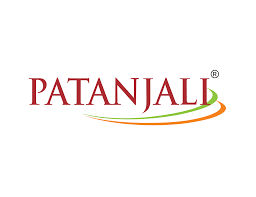


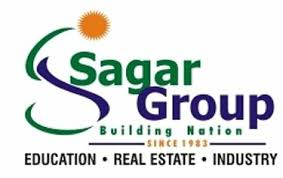





.jpg)













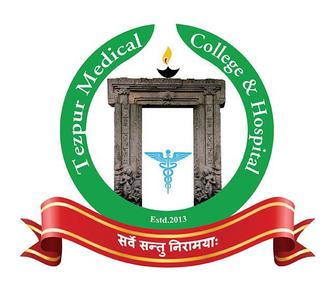






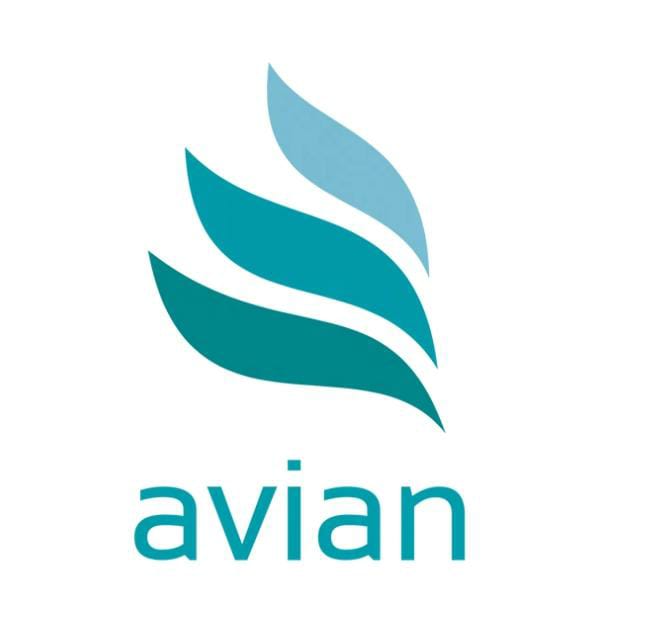


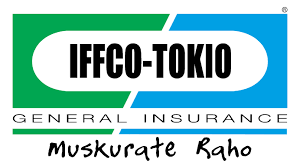

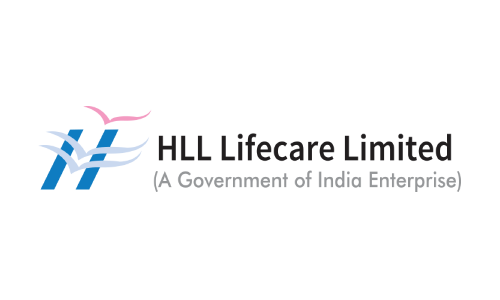
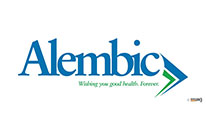







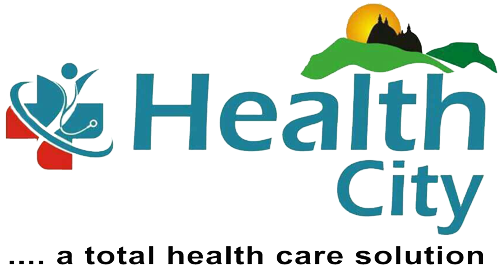
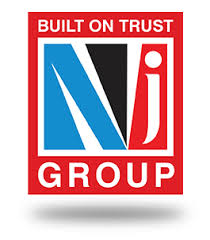


"I am a BBA student of 3rd semester. I hail from Bhutan. I vow that I am having a great experience i...
"AdtU is amazing. I am a BBA student of 2019-22 batch and I am just grateful for the amount of oppor...
Let us be grateful to the people and place who makes us happy. They are the charming gardeners whom ...
Currently I am pursuing MBA in Assam Down Town University. MBA is the professional course through wh...
AdtU is a university that focuses on giving knowledge, education and simultaneously making the stude...
The Assam downtown University has been a great learning experience. The university has provided me w...
My experience with AdtU has been splendid one indeed. Little needs to said about its scenic infrastr...
As a student I am very glad that I have got an opportunity to study here in Assam downtown universi...
My name is Sakhyajit Roy. I?m from Tripura. I joined the university on Auguest, 2017 as a student of...
I share immense pleasure to share my post graduate program experience in Assam down town University....
AdtU is a platform where I got golden opportunities to feed my zeal for knowledge through the dynami...
I am fortunate to get an opportunity to study here in Assam Downtown University. The best thing abou...
Our university is one of the best place for developing ourselves in the field of research and acedem...
ADTU is a university that is very good interms of infrastructure, academics and placements. Our tea...
It is one of best private colleges in North East India, it also provides a good environment for ed...
ADTU is a good University which provides the students with best quality lectures and ensures comfort...
The environment of Assam downtown university is very pleasant.The department of BMLT is very good a...
The university has all the necessary facilities and amenities for students . The classrooms and the ...
Assam downtown University is well recognised all over india. In the ongoing pandemic situation it ha...








